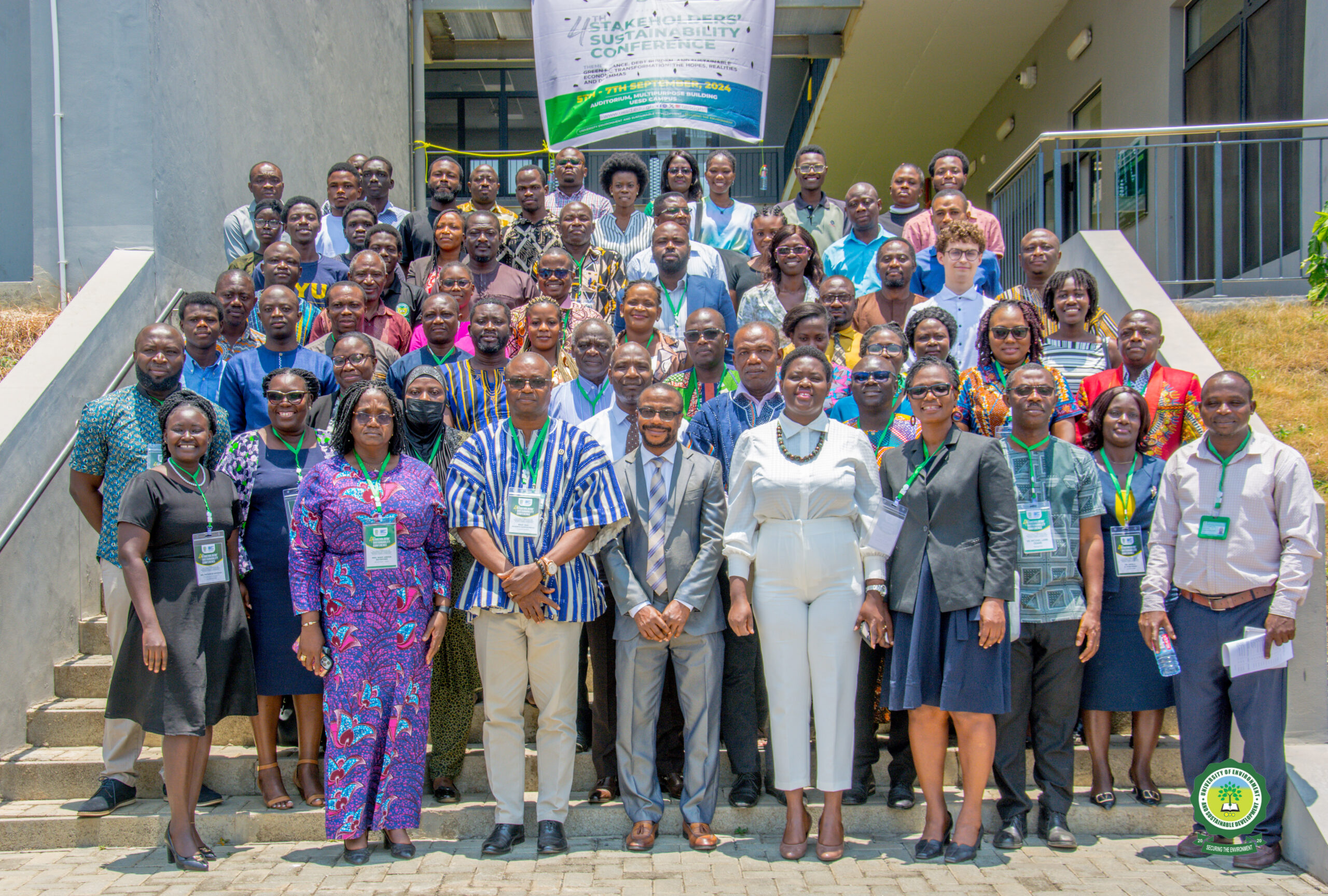This year’s joint Stakeholders’ Sustainability Conference of the University of Environment and Sustainable Development (UESD) and the Friedrich-Ebert-Stiftung Economic Policy Competence Centre opened in the Auditorium of the Multi-Purpose Building of the University at Somanya in the Yilo Krobo Municipality of the Eastern Region.
The Stakeholders’ Sustainability Conference, now in its 4th edition, is an annual event aimed at bringing together policymakers, academics, and industry experts to explore the hopes, realities, and dilemmas of the African continent, with specific focus on Ghana, to offer pragmatic solutions and ideas relevant to the continent’s development agenda.
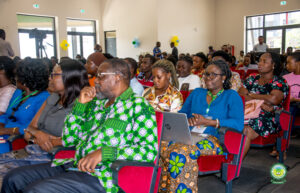
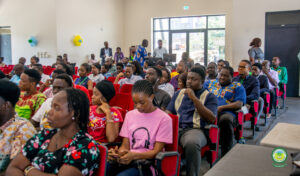
The two-day conference , titled Green Finance, Debt Burden, and Sustainable Economic Transformation: Hopes, Realities, and Dilemmas, features professionals from both Ghana (including UESD faculty) and abroad, coming together for in-depth academic discourse. The conversations, structured around panel discussions and plenary sessions, aim to address pressing issues such as the current state of Ghana’s debt burden and its implications for economic stability, Debt Sustainability, Green Finance Integration, Balancing Development, and Debt: Strategic Approaches for Ghana’s Future, and Climate Resilience and Economic Diversification.
In his welcome address, the Vice-Chancellor of UESD, Prof. Eric Nyarko-Sampson, noted that over the past decades, Ghana has accumulated substantial debt, both domestically and internationally, to finance infrastructure projects and other expenditures, including climate resilience interventions—a phenomenon prevalent in most developing economies. He also highlighted that the economy’s reliance on exporting commodities such as gold, cocoa, and oil, coupled with fluctuations in global prices, has affected government revenue and exacerbated the debt situation.
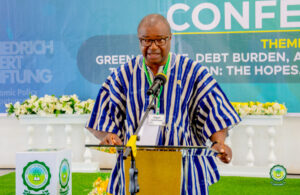
Prof. Nyarko-Sampson expressed hope that the participants would address these issues and provide policy solutions to help governments leverage available opportunities to consciously finance green solutions.
The Programmes Coordinator of FES-EPCC, Ms. Eunice Asiedu, also emphasised the impact of climate change on Ghana’s overall development and environmental stability, particularly given the nation’s limited investments in financing green projects. She reiterated her organisation’s commitment to supporting Ghana’s sustainable development agenda.
Keynote Address
In his keynote address, the Head of Policy, Media, and Communication at 350 Ghana, Mr. Charles Wundengba, stressed the need to maintain a balance between carbon dioxide (CO2) emissions and atmospheric heat for human survival. He explained that when CO2 levels exceed 350 parts per million, human survival is at risk. Currently, CO2 levels are over 422 parts per million, which is why urgent action is required in Ghana to avert the looming threat to lives.
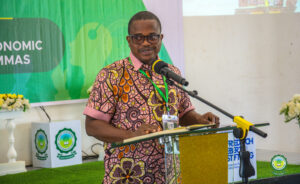
Despite Africa’s abundant sunlight, Mr. Wundengba pointed out that Ghana, like many other African countries, loses 5% of its annual GDP to climate change. He also highlighted challenges such as limited recycling options, a shortage of skilled labor, and restricted access to green financing due to the government’s significant financial burdens. Nevertheless, he expressed optimism that the conference would achieve its objectives.
Notable participants included the Pro-Vice-Chancellor of UESD, Prof. Anthony Amoah; Registrar, Mrs. Mary Abena Agyepong; university students; and representatives from NDPC, EPA, GAWU, GD Resource Centre, and online contributors.

